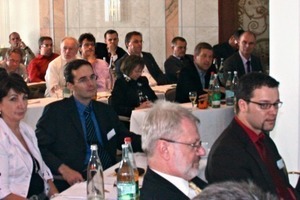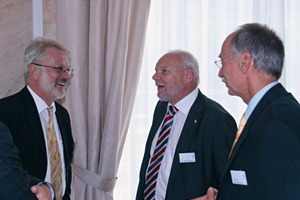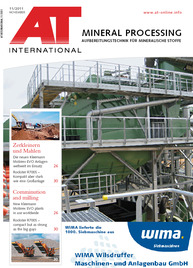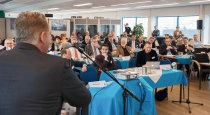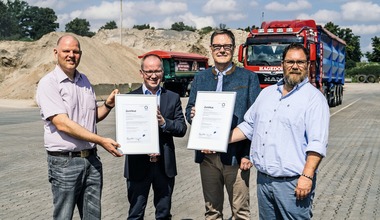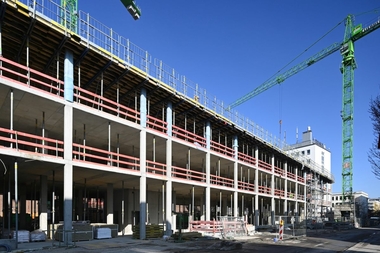Building materials recycling with key role in the preservation of resources
Rarely have representatives from industry, government ministries, science and research been in such agreement than at BGRB Congress (Fig. 1) in respect of the outstanding importance of building materials recycling for the preservation of resources and the avoidance of waste. Wolfgang Türlings, Chairman of the BGRB (German Quality Assurance Association for Recycled Building Materials), opened the congress on 13 September 2011 with an appeal to those responsible in politics and administration not only to demand the preservation of resources and waste avoidance, but to actively promote these too.
Dr.-Ing. Hans-Hartwig Loewenstein, President of the Central Association of the German Construction Industry, underlined the necessity of the recycling economy. He explained that in the scope of a voluntary commitment, the construction industry had halved the volume of mineral building waste thanks to recycling. Loewenstein demanded that this progress should, however, not be undone as a result of unbalanced legislation procedures. Johannes Remmel, Minister of the Environment in the German state of North Rhine-Westphalia (NRW), pointed out the challenges of environmental and climate protection in general and the special responsibility of NRW as the German state having the largest population and being a major industrial centre in the preservation of resources. On account of the large volumes of mineral construction waste, building materials recycling in particular was, he claimed, a crucial factor for resource efficiency not only in NRW. He stressed that according to the recycling ordinance in NRW, recycled building materials must be taken into consideration in public contracts.
Dr. Helge Wendenburg, Department Manager in the German Ministry of the Environment (Fig. 2), spoke on European and global efforts to improve resource efficiency. He underscored the contribution of mineral waste recycling to the preservation of resources and drew attention to the German resource efficiency programme ProgRess, which, he explained, foresaw an expansion of building materials recycling. He said that the framework ordinance would regulate the handling of recycled building materials across Germany for the first time, facilitating their use.
In further talks and the subsequent panel discussion, the concerns and needs of recycling practice were voiced. Dr. Axel Kopp, German Ministry of the Environment, assured an amendment of the Alternative Building Materials Ordinance, e.g. in respect of the testing methods and material value for sulphate. The delegates were agreed that product status should be awarded to quality assured recycled building materials. Dr. Kopp pointed out that it was up to the EU Commission to regulate the end of the “waste status” for recycled mineral products. In the view of the German Environment Ministry, he explained, product status could be awarded to recycled building materials in the highest quality class. Other talks, for example, on higher quality recycling, the recycling of auto-sands for quality-assured backfilling and recultivation of clay pits rounded off the congress.

